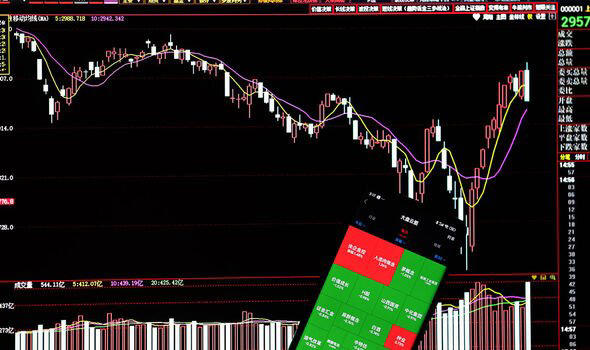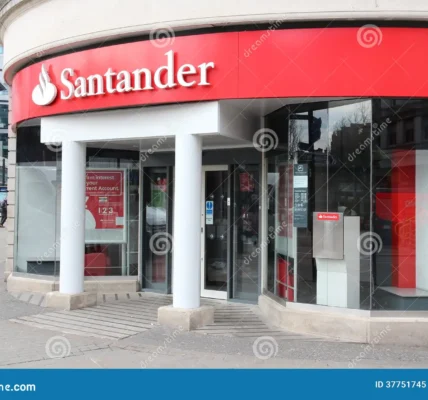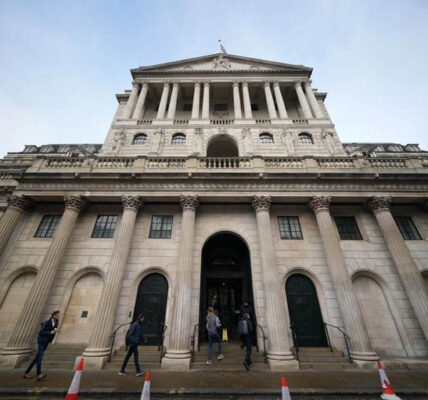UK Public Debt and FTSE 100: A Cause for Concern?
UK Public Debt and FTSE 100: Understand how rising government debt is impacting the UK stock market and learn about other factors affecting investor sentiment.
The past week brought a double dose of news for the UK economy, with both the FTSE 100 (Financial Times Stock Exchange 100), a key indicator of the UK’s largest companies, and UK public debt making headlines. Let’s break down what happened and what it means for you.

FTSE 100 Takes a Tumble
The FTSE 100 closed down 0.4% on Friday, June 21st. This might seem like a small dip, but it’s worth noting this decline happened alongside some concerning news: the UK’s public debt has reached its highest level in over 60 years.
The Office for National Statistics (ONS) reported that public sector net debt reached a staggering 99.8% of GDP (Gross Domestic Product) in May. In simpler terms, the government owes a massive amount of money, close to the total value of everything produced and sold in the UK in a year. This has investors worried, and with good reason.
Why Does Public Debt Matter to the Stock Market?
Imagine you’re considering lending money to a friend. If your friend already owes a lot of people money, you might be more hesitant to lend them more, right? The same logic applies to investors and governments.
High public debt can make investors less confident in the UK’s economic stability. It raises concerns about the government’s ability to pay its bills, manage inflation, and invest in future growth. This lack of confidence can lead to a decrease in investment, which can in turn slow down economic growth and potentially hurt the stock market.
Slowing Economic Growth Adds to the Mix
The news about public debt wasn’t the only factor impacting the FTSE 100. Separate data showed that the UK’s private sector, which includes businesses not owned by the government, grew at its slowest rate for seven months in June. This slowdown is likely due to a combination of factors, including:
- High inflation: Rising costs for goods and services can make businesses hesitant to invest and expand.
- Uncertainty around the upcoming General Election: Businesses might be waiting to see who wins the election before making major decisions.
- Interest rate hikes: The Bank of England recently decided to keep interest rates high to combat inflation. While this helps control inflation, it can also make it more expensive for businesses to borrow money.
These factors, combined with high public debt, are creating a cautious atmosphere in the UK economy. Investors are waiting to see how the situation unfolds before making big bets on the stock market.
So, Should You Panic?
Not necessarily. The UK economy is still large and diverse, and the FTSE 100 has historically bounced back from downturns.
Here are some things to keep in mind:
- Long-term vs. Short-term: If you’re investing for the long term (say, retirement), short-term fluctuations in the market may not be a major concern. However, if you’re planning to invest your money in the near future, you might want to be more cautious.
- Diversification is Key: Don’t put all your eggs in one basket! Spreading your investments across different asset classes (like stocks, bonds, and real estate) can help mitigate risk.
- Do Your Research: Before investing in any company, it’s important to understand its business model, financial health, and future prospects. Don’t just follow the crowd!
What’s Next?
The coming weeks and months will be crucial for the UK economy. The outcome of the General Election could have a significant impact on investor confidence. The Bank of England’s next decision on interest rates will also be closely watched.
Staying informed about these developments will help you make informed investment decisions. Remember, investing involves risk, so it’s always a good idea to talk to a financial advisor before making any major decisions.
ALSO READ:
Capital Gains Tax Increase: 3 Shocking Ways It Could Backfire



